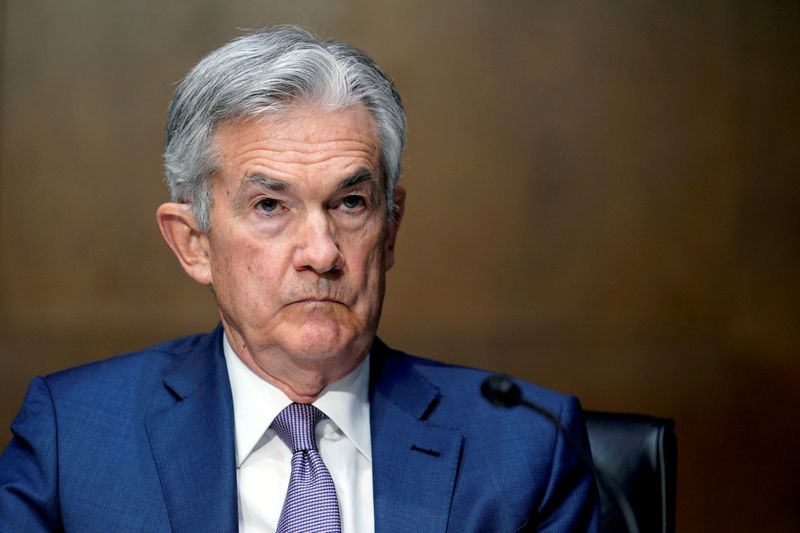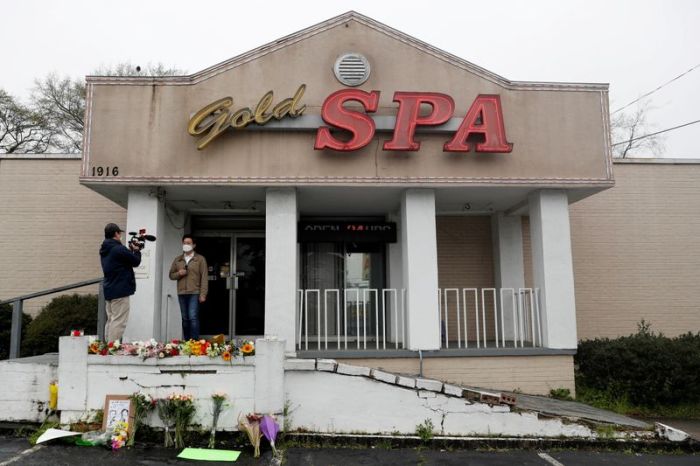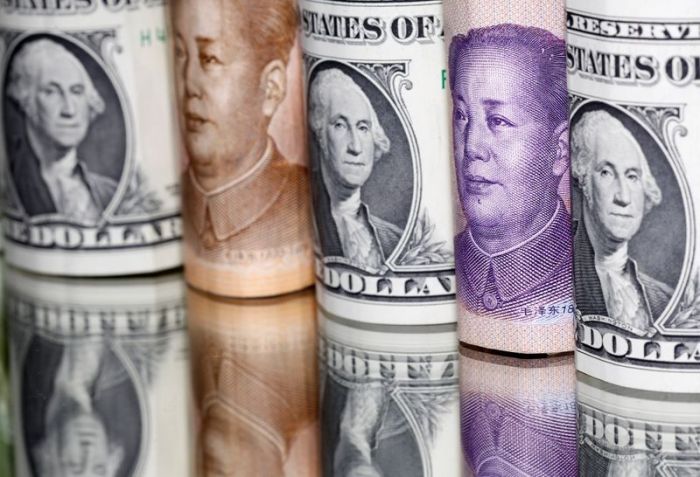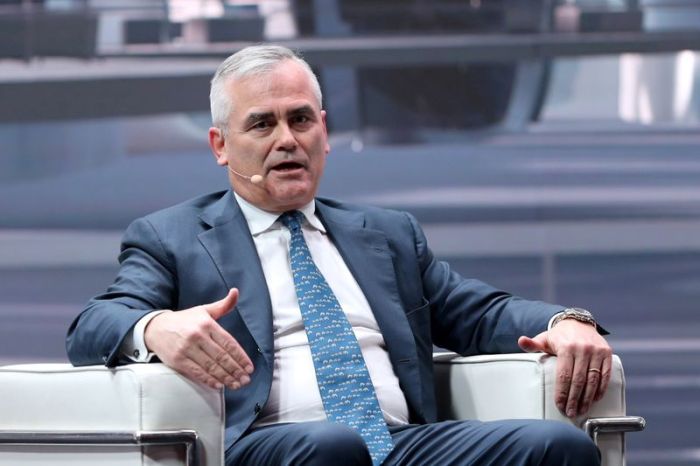WASHINGTON (Reuters) – An esoteric bank capital rule has become an unlikely political hot potato for Federal Reserve Chair Jerome Powell, as the Republican appointee enters the final 12 months of his term under Democratic President Joe Biden’s administration, analysts said.
On March 31, an emergency pandemic regulatory relief measure that for the past year has allowed Wall Street banks to hold less loss-absorbing capital against certain assets is due to expire.
The industry has been lobbying the U.S. central bank to extend the relief, arguing the rule is fundamentally flawed and reprising it could stall the U.S. economic recovery. But powerful Democrats, already angry with Powell for granting Wall Street several regulatory breaks during the Trump administration, are pressuring him to deny another industry giveaway.
Whether to extend the relief has become the first major political test for Powell under the Biden administration. Like his predecessors, he is expected to seek re-nomination.
Appearing to yield to the industry could put a second term in jeopardy for Powell, who was appointed Fed chief by former Republican President Donald Trump, because anti-Wall Street progressives control the Senate Banking Committee, which vets Fed nominees, and hold sway over White House financial nominees, analysts said.
“Powell (is) in a politically precarious position,” said Isaac Boltansky, director of policy research at Washington-based Compass Point Research & Trading. “This decision will leave someone politically important unhappy with him.”
The Fed, an independent agency, declined to comment. When asked about the rule at a news briefing on Wednesday, Powell said the central bank would announce “something” in coming days.
Regulators introduced the supplementary leverage ratio following the financial crisis more than a decade ago as an extra safeguard. It requires big banks to hold an additional layer of capital against assets, regardless of their risk.
In April 2020, after a meltdown in the Treasury market and as cash-strapped bank customers rushed to draw down credit lines, the Fed temporarily exempted banks’ holdings of U.S. Treasuries and deposits held with the central bank from the ratio.
Wall Street lobby groups say if the Fed doesn’t extend the relief, banks may have to be pickier about accepting deposits, pull back from lending, or buy less Treasury debt. That could spark another bout of Treasury market turmoil and reduce overall credit in the system, setting back the recovery.
The Bank Policy Institute, which represents JPMorgan Chase & Co and Goldman Sachs Group Inc, among others, said this month that returning to the normal rules could create “an incentive for banks to reduce low-risk, balance-sheet-intensive activities.” It said the Fed should extend the relief indefinitely and pursue a broader overhaul of its rules.
Progressives, including Democratic Senators Elizabeth Warren and Sherrod Brown, who now heads the Senate Banking Committee, say banks are cynically seizing an opportunity to ease more rules.
They point out that big banks have enough capital to buy back shares and issue dividends – activities that the Fed approves based on banks’ capital reserves – and they have warned Powell in published letters not to “weaken one of the most important post-crisis regulatory reforms.”
MAYHEM FEAR
Some analysts agree banks are overplaying the risks.
Credit Suisse analyst Zoltan Pozsar wrote on Tuesday that the overwhelming majority of the exempt assets are held by banks’ operating subsidiaries, not by the bank holding companies, to which the Fed granted the relief.
And while regulators granted similar optional relief to those subsidiaries, most failed to make use of it because there were strings attached. That means allowing the exemption to expire could have a muted impact, Pozsar wrote.
“Neither the Fed nor the market should fear mayhem if the exemption expires,” he wrote.
The Powell-led Fed has revised bank rules, arguing they were overly burdensome. The changes drew the ire of progressive Democrats, who say they increase risks and hurt consumers.
Powell, who was originally appointed to the Fed’s Board of Governors as a moderate Republican by Democratic President Barack Obama in 2012, has won bipartisan support for his swift handling of the economic crisis caused by the coronavirus pandemic.
But siding with Wall Street would hand ammunition to Democrats who want one of their own in a position with such singular power to steer the U.S. economy, especially if Powell fails to persuade the Fed’s longstanding Democratic governor Lael Brainard to back the move.
She voted for the relief, but has previously dissented against several rule changes she said were too generous to Wall Street, and her votes are closely tracked by progressives.
The Fed may ostensibly be independent, but it is acutely aware of the political dynamics, analysts said.
“It is hard for us to see Powell getting aggressive with Congress or the Fed adopting a new policy any time soon,” Cowen Washington research group wrote on Thursday.
“It is why our call has been that the Federal Reserve will buy time with a three-month extension.”
(Reporting by Pete Schroeder; Additional reporting by Howard Schneider; Editing by Michelle Price, Leslie Adler and Paul Simao)


















